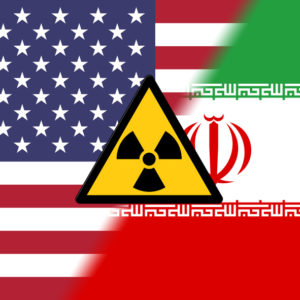Don’t Buy Into UN Fearmongering on the Iran Deal

iStock.com/ Credit:stuartmiles99
The Trump administration announced that the United States would begin the process of triggering the Iran sanctions snapback mechanism that will restore the robust sanctions regime that was terminated in 2015 as part of the Iran nuclear deal. Supporters of the deal (namely the U.K., France, Germany, and an army of well-wishing foreign policy elites from the Obama administration) are desperate to keep it on life support to preserve the possibility of a Biden administration re-entering the deal if he wins.
Advocates are now claiming that since the Trump administration made the mistake of withdrawing from the nuclear deal, the U.S. cannot now use the deal’s snap-back mechanism to reimpose sanctions. They’re wrong.
The Trump administration is seeking to invoke the nuclear deal’s snap-back provision in order to preserve the arms embargo on Iran that the U.N. Security Council just decided to let expire in October. The arms embargo prevents the sale of advanced military weapons such as fighter planes and tanks to Iran. Snap-back would not only maintain the much-needed arms embargo, but also extend the ballistic missile ban, which limits Iran’s capacity to procure or build the missiles regime it would need to deliver a nuclear weapon — a ban set to expire in 2023 but which Iran repeatedly violates.
Opponents of snap-back argue that because the U.S. withdrew from the nuclear deal, it doesn’t have the legal standing to reimpose sanctions. But this is plainly untrue. The snap-back provision is enshrined in U.N. Security Council Resolution 2231, which formally endorsed the nuclear deal. The resolution both suspended prior sanctions and included a snap-back provision which allowed for the re-imposition of those U.N. sanctions and restrictions on Iran.
According to the convoluted (even by U.N. standards) language of the resolution, any “participant state” — that is, any of the five permanent members of the U.N. Security Council — is eligible to trigger the snap-back if it considers Iran in “significant nonperformance” of the nuclear deal. The U.S., according to this resolution, is deemed a participant state in perpetuity.
The resolutions counterintuitive snap-back mechanism allows any participant state to re-impose the multilateral sanctions and restrictions, effectively killing the Iran nuclear deal. This mechanism isn’t a technicality: the ability of the U.S. to unilaterally “snap back” sanctions was one of the Obama administration’s major selling points for the deal. Further, the UN resolution is worded such that Security Council unanimity would be required to stop the snap-back process and preserve the nuclear deal.
Thus, the Trump administration can effectively kill the deal once and for all as it has correctly chosen to do.
Few parties have an interest in continuing to put pressure on Iran in any meaningful way. Naturally, the same foreign policy establishment in Washington that worked so hard to drag the Iran nuclear deal over the finish line in 2015 is dismayed to see its collapse. And of course, there are our European allies who have always wanted to tap into the Iranian market and who, for ideological reasons, insist on pretending that diplomacy worked despite all the evidence to the contrary.
And then there are Russia and China, who have a shared interest in gaining a new customer for their arms exports and a newly emboldened ally in their campaign to undermine American power and leadership in the world.
The deal was deeply flawed from the outset, but that it wasn’t working became undeniable after Israel captured Iran’s secret nuclear archives in 2018, which proved that even after the deal was implemented Iran continued to pursue its weapons program.
Perhaps the loudest and most recent claim from critics of snap-back sanctions is that invoking the mechanism will throw the U.N. into chaos as it grapples with a crisis of credibility. But it’s worth remembering that the consequences to the Security Council’s reputation from rejecting the U.S.’s perfectly legitimate snap-back will be of the council’s own making.
Security Council members Russia, China, France, and the U.K. went all-in on a clearly foolish nuclear deal that had little chance of surviving past the Obama administration. They wrote in a safety valve that they apparently hoped would never be implemented. The Security Council can demonstrate that it is a neutral body committed to the language of the resolutions it adopts, or it can bitterly cling to a nuclear deal that still exists only on paper.
When asked about Europe trying to buck the snap-back, one Republican foreign policy veteran told me, “The Europeans are doing what they’ve done since 2017, working with Obama-Biden alums to undermine Trump’s policy on Iran. If they’re willing to keep doing that and sacrifice the credibility of the entire United Nations, then that’s on them, not us.”
There’s a deeper problem for European fans of the nuclear deal: When the US reimposes Iran sanctions, they will be forced to choose between their access to the Iranian market and the U.S. market. It’s the same choice they faced in rounds of sanctions the U.S. imposed before 2015, and the pattern always repeats itself: Europe makes a lot of noise about diplomacy with Iran, but always maintains its access to the American market. Europe will do so again after the U.S. snaps back sanctions on Iran.
Erielle Davidson (@politicalelle) is a senior policy analyst at the Jewish Institute for National Security of America.
Originally published in The Washington Examiner